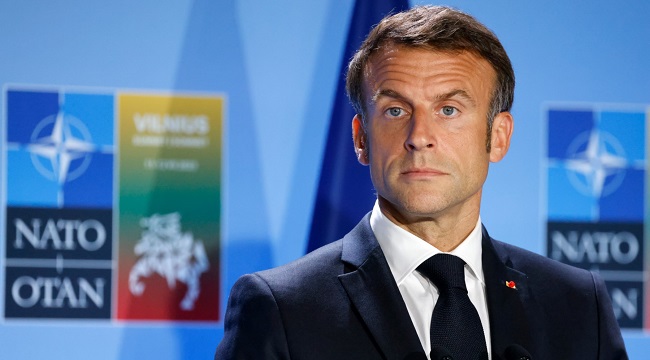France’s leading diplomat stated on Monday that Paris is urging China to convey “clear messages” to its strategic ally Russia regarding the war in Ukraine, following discussions with his counterpart in Beijing.
In recent years, France and China have endeavored to bolster their relationship, and during the meetings in Paris this February, Foreign Minister Wang Yi expressed to President Emmanuel Macron that Beijing values France’s “independent” position.
However, Paris has continued to challenge Beijing about its relationship with Moscow, which has intensified since the onset of the Ukraine conflict.
Although China declares itself as a neutral entity in the Ukraine war, it has faced criticism for not denouncing Moscow’s aggression.
Paris has become one of Kyiv’s staunchest supporters, with President Macron not dismissing the possibility of deploying troops to Ukraine as of February.
Foreign Minister Stephane Sejourne stated on Monday that Beijing holds a crucial role in respecting international law, including Ukraine’s sovereignty. Consequently, France anticipates China will communicate unequivocal messages to Russia.
“We are certain that enduring peace is unattainable without negotiations involving the Ukrainians,” he declared during a press conference in Beijing, with his Chinese counterpart Wang by his side.
“European security is contingent on peace that adheres to international law,” he added.
“This matter is of utmost importance to us, prompting France’s commitment to ongoing dialogue with China,” he remarked.
Sejourne’s trip marks the second visit to China by a French foreign minister in under six months, succeeding Catherine Colonna’s journey in November.
On Monday afternoon, he had a meeting with Premier Li Qiang.
In the opulent Great Hall of the People in Beijing, the French minister expressed his desire to discuss “global situations that are fracturing and dividing the world today,” specifically mentioning the Middle East and Ukraine.
Li warmly welcomed the minister to Beijing, celebrating the long history and splendid civilizations of their two countries and their shared “spirit of independence and autonomy,” which he believes fosters a natural closeness between China and France.
Macron’s visit last April was met with enthusiasm, as he was greeted by hundreds of excited students and fans at a university in southern China. However, his comments suggesting that Europe should not follow the United States in a potential conflict with China over Taiwan led to controversy and accusations of pandering to Beijing.
The foreign minister’s current visit is part of the celebrations for the 60th anniversary of diplomatic relations between France and China.
Sejourne will later in the day take part in the launch of the “Versailles and the Forbidden City” exhibition, where around 60 works of art and valuables from the palace can be viewed by the public until the end of June.
– ‘Derisking’ not ‘decoupling’ –
France’s efforts to improve ties with Beijing come as the EU seeks to shield itself from excessive reliance on China.
That “derisking” has emerged in recent months as a core pillar of the European bloc’s economic policy towards China, spurred by the Covid-19 pandemic and Russia’s invasion of Ukraine.
The term contrasts with the more drastic approach known as “decoupling” — pursued by some policymakers in the United States who aim to isolate China or cut all commercial ties with the country.
The EU increasingly views China as a “partner”, but also as “an economic competitor and systemic rival”, a report by the European Union Chamber of Commerce in China said last month.
In Beijing on Monday, Sejourne stated that decoupling was not being considered. However, he mentioned the necessity of an “economic rebalancing” to ensure that trade remains “healthy and sustainable.”
In response, Foreign Minister Wang expressed his appreciation for Sejourne’s stance against decoupling. “Decoupling from China is not feasible, and it represents the greatest risk,” Wang declared.
He added, “I am convinced, as has been demonstrated and will continue to be, that China represents an opportunity rather than a risk for Europe. We are partners, not adversaries.”










